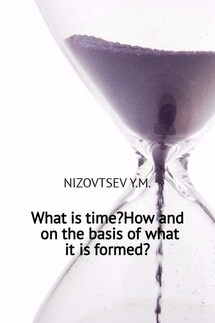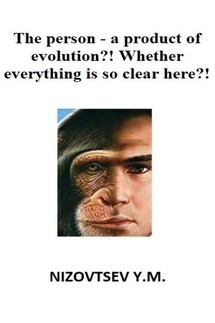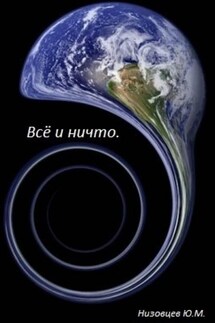Everything and nothingness - страница 16
At the same time Avenarius believes that each person is a sensing substance, i.e. he recognizes existence along with sensations (consciousness) of some matter though accurately doesn't share them: "So as … neither the experience nor the right conclusions from it do not give the right to consider sensations as a result of motion, it is appropriate to recognize sensations as a property of the respective substance and therefore to allow the existence of sentient substances. At this is especially valuable for us the fact that we know ourselves as the sensing substance and in our inner experience sensation is given with more certainty than is substantiality" [3, §91].
But not everything is exactly as believe Mach and Avenarius because on the basis presented by them it is impossible to draw conclusion on absence in general for the person of the objective reality, more precisely, to draw a conclusion on lack of things, which are independent of consciousness, for the following reasons.
In infinite and eternal Uniform consciousness (the active) and things (the passive) are merged together, and in a different way out of time can't be, and it isn't necessary to speak here about dependence or independence of things from consciousness.
But timeless Uniform as the infinite which remains invariable, is manifested through own holographic projection which exists in time, and three-dimensional measurement as a derivative from it the person can observe. And this changeable reality round the person is quite independent of him so how he isn't capable to change motion of stars and even weather on Earth.
Therefore, Avenarius and Mach are wrong in their denial of the existence of objective reality for the human, or more precisely, – denial of independently existing from human things, essentially bearing in mind only something with which one is confronted in its activity, pointing to the inseparability of subject and object in the experiment.
But even in this field things and the person are clearly separated from each other, although Avenarius believes otherwise: "… two component parts are inseparably fused in a primitive experience: first, what by its content is given indeed through the subject; secondly, what one who cognizes, perhaps, himself has introduced into the subject of experience"[3, §49].
However in this reality accurately works the practice as criterion of truth. So, Avenarius's statement is disproved then, that if in the same experiment it would be impossible to determine that is given through a thing and that is introduced by the person-experimenter, then results of experiment from the practical point of view would be senseless. But this is not so: the experiments are carried out only to find sense in things and use it for extending the boundaries of the cognitive process, and for practical purposes, in particular for improving human life. So that, distinction between the person and a thing in experiment completely doesn't disappear, despite their interaction, judging by practice in the sphere of human activity.
Nevertheless, in a number of physical and chemical experiments it isn't possible to receive data, "pure" from the experimenter's exercises on object of research and they have to be conjectured and/or experimental conditions have to be changed, but completely to make experience by "the pure", as Avenarius believed: "Scientific experience differs from naive experience the fact that it really separates this experience from what it introduces and thinks together with the data in the experience" [3, §49], is impossible.









